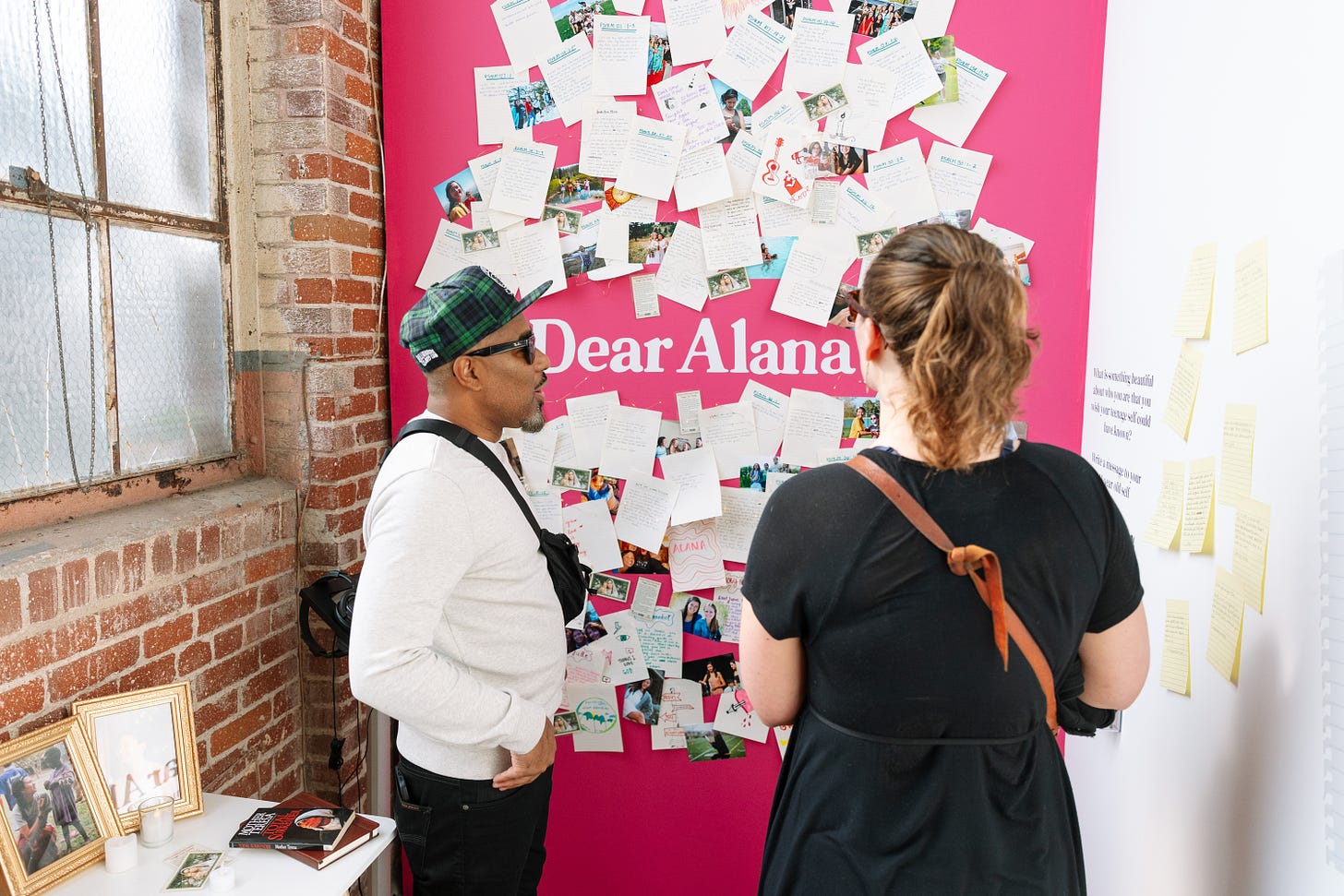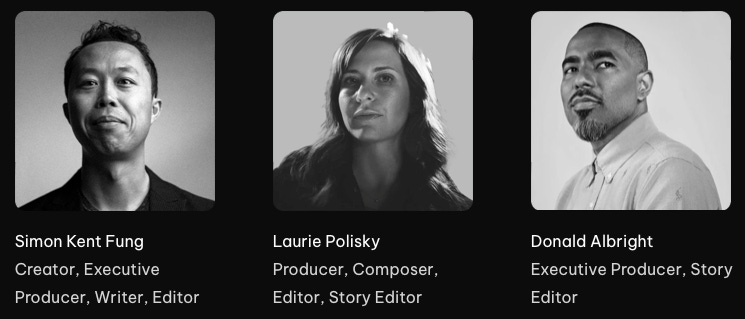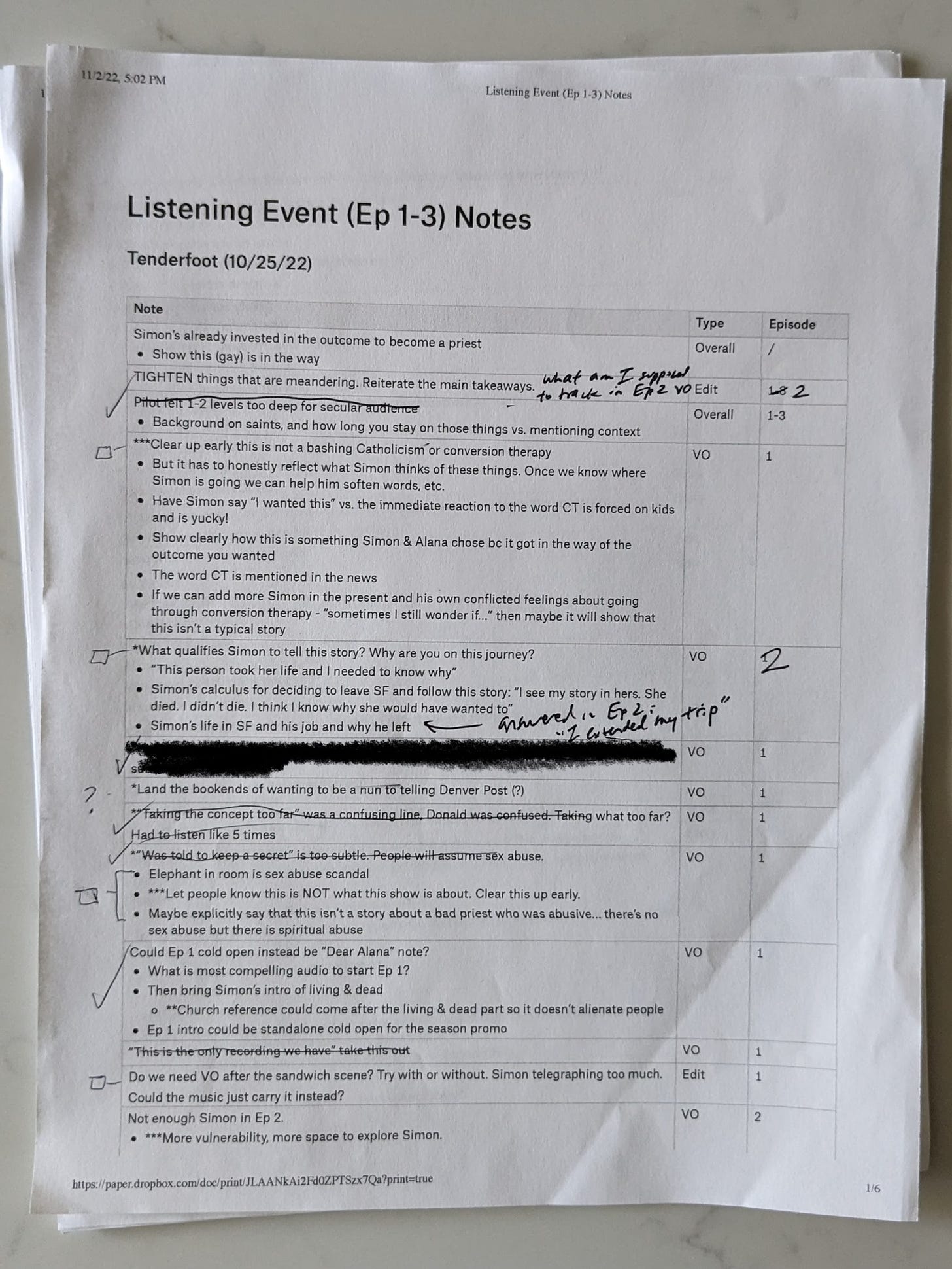"Tenderfoot Was Never About True Crime": A Conversation with Tenderfoot TV CEO Donald Albright and Partnerships Lead Tracy Leeds Kaplan
Why They Pursued "Dear Alana," How They Find New Projects, and What They Look For In Creative Partnerships
Hello Squeeze People!
About a month and a half ago, I published an interview with Dear Alana creator Simon Kent Fung, in which he discussed the experience of pitching his show to podcast production and distribution partners. After receiving offers from a number of well-known industry players, Simon chose to work with Tenderfoot TV, and when the show launched this past August, it hit number one on Apple Podcasts in the U.S. and Canada in its first week.
After speaking with Simon, I arranged a second interview with Tenderfoot TV CEO Donald Albright, who was intimately involved with the making of Dear Alana, and the company’s operations and partnerships lead Tracy Leeds Kaplan, who had been a co-worker of Simon’s at Patreon and played a pivotal role in bringing his project to the attention of her employer. I was especially interested to learn why Tenderfoot TV, a company that made its name with podcasts about serial killers and mysterious disappearances, had taken on a show with a decidedly different vibe, but we also discussed how they find new projects, what’s important to them in creative partnerships, and more.
While this is not a review of Dear Alana, I highly recommend the show. Over the course of eight episodes, Simon traces the brief life of a young woman grappling with issues of faith, sexual identity, and belonging — a struggle familiar to Simon. The nuance found in Simon’s storytelling and the note-perfect way in which he weaves his own story into its narrative, make Dear Alana exceptional.
Okay, let’s hit it!
This interview has been edited for clarity and length.
Skye: Tracy, you were one of the first people Simon reached out to for guidance, since you had worked together at Patreon. He told me you went over to his place to discuss the podcast industry. What was that like?
Tracy: It was November of 2021, so there was definitely that awkwardness about being in someone’s apartment, but I was excited to have a reason to leave my house! When I got there, Simon had a whiteboard set up for us and was ready to work. I mapped out how everything fits together; the relationship between publishers and monetization and distribution channels, that kind of stuff. He was soaking it up like a sponge.

Skye: What was the moment you knew you wanted to explore partnering with Simon on the show?
Tracy: In early March of 2022, Simon and I spent some time catching up. It had been a while and he’d made great progress on the pilot. When I heard it, I knew that it would be a great fit for Tenderfoot. I was actually a little jealous of what he had put together!
Skye: Why?
Tracy: Simon already had such a strong and compelling voice in that first episode, but he was also vulnerable in a way that I knew would connect with audiences. It’s not easy for a first time podcaster to create something so powerful and engaging right off the bat.
Skye: Were you aware that Simon had pursued conversion therapy?
Tracy: No, but as soon as he started sharing it, I was drawn to how much he still loved his religion, even after all he had been through. He blew away some of my preconceived notions about conversion therapy. You hear stories about family members forcing people into conversion therapy, yet here were two cases where that wasn’t the situation at all; Simon and Alana’s families loved them for who they were.
Skye: Why did you think that Tenderfoot would be the right fit for this particular show?
Tracy: We have the right team for stories are complicated and not easy to tell. I also saw the opportunity to speak to new audiences that we hadn’t connected with yet and bring listeners into a story that had many layers.
Skye: I never would have predicted that Dear Alana would land at Tenderfoot, as I’ve always associated the company with more traditional true crime shows like Up and Vanished and Monster.
Donald: I’m aware that creators who are looking at us from the outside might think that Tenderfoot is not the right place for their project if it’s not a true crime story, but we’ve expanded beyond that in a few directions now. They don’t know what we’re working on today that will come out in the second half of next year, right? We’re the only ones who know our trajectory as a studio.
Skye: Given that true crime is still extremely popular, what is the business reason for expanding in new directions?
Donald: It’s part of a conscious effort to not get too comfortable just because we have an established true crime audience. We don’t want to keep making true crime shows just because that’s what we think our audience wants; we want to tell stories that we think are important. The truth is that Tenderfoot was never about true crime. It was about story, it was about characters — and it was about the mystery, intrigue, and suspense that could be part of any show. A podcast in our portfolio doesn’t have to be a whodunit murder case, or a show about a serial killer or a disappearance. Sometimes it's a who's responsible. That’s what it was with the first two seasons of Culpable for example, and that's what it is with Dear Alana. The show has true crime elements, but many factors played into why it was a good fit for us, including its potential to impact different audiences and the fact that Simon was the perfect storyteller for it.

Skye: Was the fact that Simon was new to podcasting a concern?
Donald: Almost all our hosts and creators were first-timers when they started working with us, so that was not an issue at all. This was a situation where everything aligned perfectly; we wanted to tell this story, and we knew we could tell it in the right way. That’s one of the reasons we independently financed it, starting from when Simon brought it to us all the way to release.
Skye: What does independently financing a show actually mean?
Donald: It can mean different things, but for Dear Alana it means that all creative fees, indie contractors, music licensing, legal, travel, ad buys, every dollar spent was financed out of pocket by Tenderfoot. For a company like ours, who has never taken investment, that is a true independent project release. We did not take a production advance or an MG [minimum guarantee] on ad sales. We took on one hundred percent of the cost and one hundred percent of the risk with no guarantees. We're grateful that iHeart came on board to rep ad sales and they provided in-kind marketing, which added to our marketing efforts.
Skye: Simon told me that one of the reasons he went with Tenderfoot is that he knew his day-to-day team would be smaller and allow for more intimacy, and he felt that was important for this particular project. Is working in small teams typical for Tenderfoot?
Donald: It depends on the show, but outside of post-production work, our teams do tend to be on the smaller side, maybe three people. With Dear Alana, the day-in, day-out work was mostly Simon, Laurie [Polisky, Dear Alana’s producer, composer, editor, and story editor], and me. We brought in other team members as needed, but when we were in the trenches of making the show, it felt comfortable to be working with a small group who really understood one another. In the process, I became friends with Simon and with Laurie. We had a lot of fun making the show. There were laughs, tears — the full range of emotions, which the audience will also experience when they listen to the show.
Skye: Does forming connections with a new team that quickly happen often?
Donald: The experience of making every show is different, but I always want new podcasters — or any podcaster, for that matter — to feel like they can’t wait to do their next project with us. I don’t care how big the show is, or if gets to number one; if someone we’ve worked with doesn’t feel like like it was a positive experience, then we’ve failed. That includes the families and communities who are involved in the making of a show, too.
Skye: You flew to Colorado for a Dear Alana listening session with Laurie and Simon before the deal with them was signed. Did that feel like a risky move? [Typically part of the development process, a listening session provides an opportunity for podcast creators to get feedback on what they’ve created so far. — SP]
Donald: Getting a deal done can take a while, but at a certain point, I just knew we were going to work with Simon on this project. And when we want a project, the paperwork is not going to hold us back.
Tracy: I think the fact that Donald, Matt [Pusti of the EDM band Makeup and Vanity Set, who oversees sound design and music production at Tenderfoot], and myself hopped on a plane for the listening session showed that we were committed to the project and didn’t want to miss any part of development. The trip also gave us a chance to get to know Laurie and hear her vision for the project.
Skye: What’s most important to you when you are considering working with a creator on a new project?
Donald: I always look at how collaborative they are. If a creator is too married to what they think is right, it can be difficult. I’ve spoken with creators who have been living with their project for six months, and all they can talk about is how great it is. I’d rather they come to us and say, I have a good story, but how can we make it even better? When Simon came to us, he was confident but humble. He knew what he brought to the project, but was eager to collaborate with our team.
Tracy: Simon had the right balance of knowing where he wanted to take the story but also being very open to feedback.

Donald: Flexibility is important. For example, with Dear Alana, we made some big structural changes, even after we had all the content and knew what each episode was going to be about.
Skye: Can you tell me about a structural change you made?
Donald: When making a show like Dear Alana, you have to think about easing an audience into a subject that they may not have signed up for. A good example of this is S-Town [a podcast from Serial and This American Life], where you thought you were in for a murder investigation but it ended up being a character piece, right? You have to figure out how you’re going to get the audience to stick around after they realize that the show has taken a turn. With Dear Alana, I thought we should stay the course of Alana and Simon’s story a bit longer before getting into the causes and history behind conversion therapy. That was a bit of a curveball for the team, but it ended up being the right choice.
Skye: You encountered Dear Alana because of Simon’s prior relationship with Tracy, but how do you ordinarily find projects?
Donald: Lots of different ways. There have been times we’ve responded to cold emails from creators who think Tenderfoot is the right fit for their project — that’s what happened with the MLK Tapes and Le Monstre, for example. Other times we’ve developed a concept internally and then figured out who should be the right voice or storyteller for it. When the host is the reason that a story can be told — as it was with Dear Alana — those projects have to find us. Dear Alana could only be told by Simon because of the parallels between his and Alana’s experience. Sometimes those opportunities come from the creator directly, others times we hear about them from agents or friends or partners. There is no blueprint to finding the right story.
Skye: Tracy, you played a pivotal role in bringing Dear Alana to Tenderfoot. Now that it’s been such a success, how do you feel?
Tracy: I’m grateful that I was in a position to help Simon tell this story in a way that could have impact, and I’m proud that I’ve developed a relationship with Donald where he trusts me and understood what I saw in the project. When Simon reached out to me in 2021, I definitely didn’t know we’d end up here, but I’m so glad he did.
That’s all for me this week! If you enjoyed this piece, please consider hitting the heart button at the bottom of the page.
Take care of each other out there,
Skye
Postscript:
While some organizations are laying off employees and shutting down hit podcasts, Tenderfoot is acquiring them; read about their purchase of Resonate Originals here.
Also, big thanks to Simon, who generously shared these notes from the listening session mentioned in today’s interview. Enjoy!






I love this so much
Wow! Just Wow!